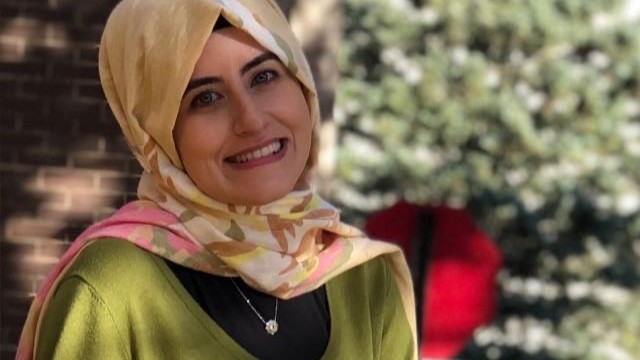archive
Dr. Nur Karatas and the healing nature of literature (11/2/2023)

Doctor Nur Karatas is starting her first year as a full-time lecturer at Loyola after teaching as a part-time instructor for the last two years. During her time in the Loyola classroom, she has taught students about the healing nature of literature.
In her UCWR and UCLR courses, Dr. Karatas applies trauma studies to literature and mass media, highlighting mourning, melancholy, grief, and loss. She teaches her students how literature can help deal with those types of emotions. One of the authors she studies in her classes is Ford Madox Ford, who was the subject of her dissertation.
“Authors like Ford dealt with trauma before and after the First World War. In Ford’s literature you can see that he was overwhelmed by loss and grief,” she says. “I compare him to other writers to understand how they all experience emotions in similar or different ways. I try to show students that we can use texts to understand these topics.”
Apart from dealing with texts from World War I, Dr. Karatas also includes popular media like Black Mirror episodes and works by Nobel Literature Prize winner Bob Dylan.
“I cover texts that are bringing more of a positive outlook or authors or writers reflecting on how writing helped them like get through such difficult times. And that's why I show students literature about something they’re dreading, so they can see that they can turn these difficult times into positive experiences” she says. “I also try to bring in different mediums of literature into class.… We explore social media accounts and try to approach them as works of literature, we cover songs and we try to analyze them, etc.”
She also has her students create a Humans of New York style profile for one of their first assignments.
“The profiles definitely help us connect early on, because we get to see that maybe we’re going through similar things in life,” she says. “After reading the posts and leaving comments on their classmates’ profiles, I ask the students to actually connect with those people in class and have that face-to-face conversation with them. That really helps us feel more comfortable with each other in the classroom early on.”
Dr. Karatas is from Istanbul, Turkey, where she did her bachelor’s degree, before going to John Carrol University in Ohio for her master’s and King’s College in London for her PhD. Her international perspective and studies is something that she shares with her students, telling them how she has been an international student and instructor on three different continents.
“A lot of the students are coming from out of state and maybe they’re going to be away from their family and friends for the first time in their lives. I tell them I was in their shoes and about the challenges I’ve had and how they helped me grow so much,” she says. “They really enjoy hearing about those experiences because they get to see that at the end of all those challenges, I am basically in a place where I am very happy to be, teaching at a university like this.”
Along with her new teaching role, Dr. Karatas wants to focus on publishing work about teaching writing or what it is like to be an international academic teaching writing.


